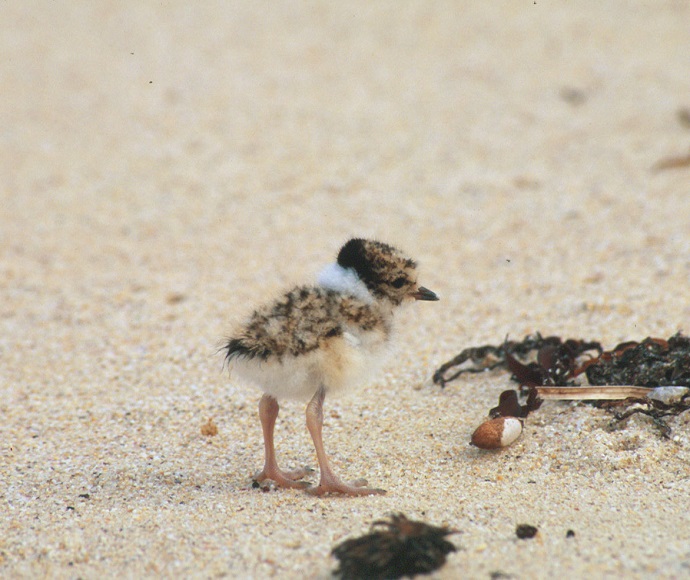With near record numbers of shorebird nests along the south coast already this summer, National Parks and Wildlife Service staff and volunteers are cautiously optimistic this season will be a success.

Kaitlyn O'Brien, Shorebird Ranger with National Parks and Wildlife Service (NPWS) says more than 240 nests are being monitored by staff and volunteers on beaches between Gerroa and Eden.
'Pied Oystercatchers, Little Terns and Hooded Plovers are all threatened beach nesting birds that breed along the NSW south coast each year,' said Ms O'Brien.
'The nesting season started in August and we have already seen around 20 chicks fledge, which is a great result before Christmas.
'However, we are wary that during the holiday season any disturbance to the remaining nests may prevent the well camouflaged eggs from hatching,' Ms O'Brien said.
NPWS is asking locals and visitors on the beach to please:
- pay attention to the shorebird signs
- keep your dog on a leash
- walk only on the wet sand.
NPWS staff and volunteers signpost shorebird breeding sites each year to remind beach goers to give the area space.
'What people might not appreciate that even if they don't touch the eggs or nest, their presence may frighten or stress the adult birds causing them to abandon their nest,' Ms O'Brien said.
'This compounds the other challenges we face protecting the nests, which is predation or trampling by foxes and dogs.
'This nesting season will also be the first without long-term shorebird volunteer Rex Worrell who recently passed away.
'Rex was our longest serving volunteer, having spent more than 25 years helping us to monitor these endangered shorebirds at Shoalhaven Heads.
'This summer, in memory of Rex, please do your part to make sure the record number of nests, turn into a record number of fledglings,' Ms O'Brien said.
Visit South Coast Shorebird Recovery Program to find out more about the program, the birds and how you can help these threatened species this summer.






